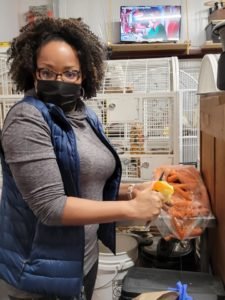Join us in our efforts to create then find our feathered friends a balanced life and long-term home. Together, we can create lasting, sustainable support for these magnificent creatures. Without your generous contribution of time, skill, and support, we could not be the community-based non-profit rescue we are.
Help us help our birds!
Please fill out the PHR Volunteer Packet Web Form and take our volunteer course. While volunteering here at PRH, we would like you to agree to a code of conduct and sign a confidentiality agreement to protect other individuals, companies, and/or entities involved with PRH.

I am a resident of Papayago Rescue House. This is my “Bill of Rights”.
- PRH is my home until I choose my family. I belong here, and my needs and desires come before yours while I am here.
- I own nothing except for myself, so please respect my space and my autonomy. No touching me without express permission. Read my cage labels, use my name, and respect the warnings and advice that are written there. It is there to help us both.
- No matter how many other parrots you have known, I am an individual, and I have my own likes, dislikes, needs, and preferences. Until you really know me, do not assume that you have my permission and approval for whatever you want to do. I will decide if and when we are friends, not you.
- My cage is my refuge, not my prison. Please keep yourself and your possessions at least 6-12 inches away from my home, because I can reach that far, and you may not like what happens if I do.
- Everything that you say and do when you are within my sight, sound, or smell is training me something. If you teach me the wrong thing, I will be labeled by the bad behavior, but it will not be my fault. Still, I will be the one that pays the price, for the more negative labels I bear, the harder it is for me to find my forever family.
- I am sensitive and intuitive. I understand the tones of your voice. Do not talk to me in a way that is angry or mean, and do not say ugly things to me, even in a sweet voice, because I deserve your respect, not your disdain.
- When you are near my cage, talk to me. Explain what you are doing and why even if you think I don’t understand your words. Smile at me, sing or read to me, be friendly and respectful. You are in my home, so treat me as you would treat any human host or hostess.
- I appreciate kindness. If you are interacting with me, please give me a treat in my bowl first. If I come to my door perch like I am being trained to do, I have earned a treat, so please give me one. Remember, if you are here, you are being trained just as much as I am, so be on your best behavior.
- I like calm, peaceful, and kind energy. I do not enjoy yelling, quick movements that I can’t predict or understand, or running. Please move slowly and deliberately while you are in my home, and do not shout, sing loudly, or do things that will upset or confuse me. Do not try to teach me bad words because you think it is funny.
- I have the right to be kept safe from all kinds of threats, Please use hand sanitizer or wash your hands thoroughly before you touch me or my cage. Do not feed me anything that is not provided by my PRH family, as I may have special dietary needs or restrictions that you know nothing about. Do not put anything in my cage unless I am supposed to have it.
- Please remember that I am not domesticated.
Wikipedia has this brief description of volunteers:
“Volunteering is generally considered an altruistic activity and is intended to promote goodness or improve human quality of life. In return, this activity can produce a feeling of self-worth and respect. There is no financial gain involved for the individual. Volunteering is also renowned for skill development, socialization, and fun. Volunteering may have positive benefits for the volunteer as well as for the person or community served. It is also intended to make contacts for possible employment. It is helping, assisting, or serving another person or persons without pay. Many volunteers are specifically trained in the areas they work, such as medicine, education, or emergency rescue. Others serve on an as-needed basis, such as in response to a natural disaster.”

